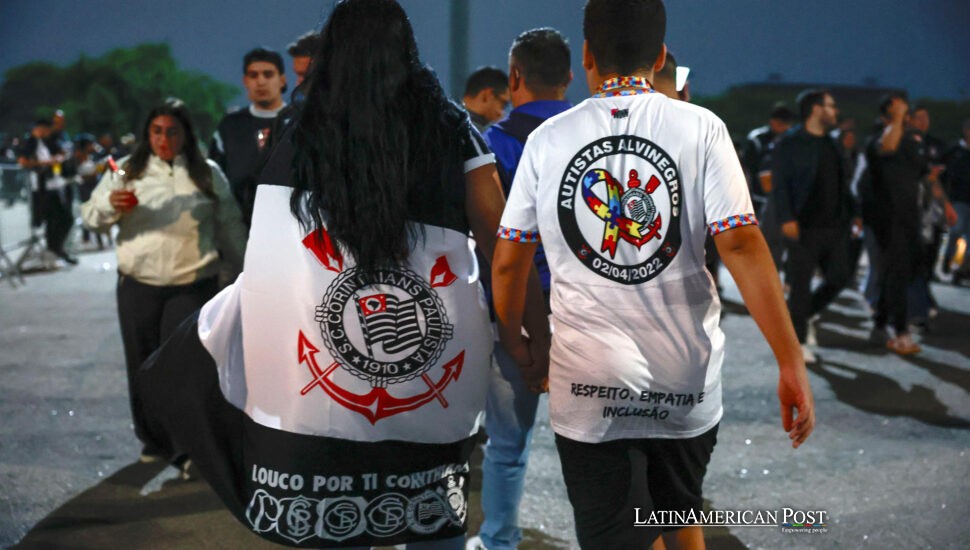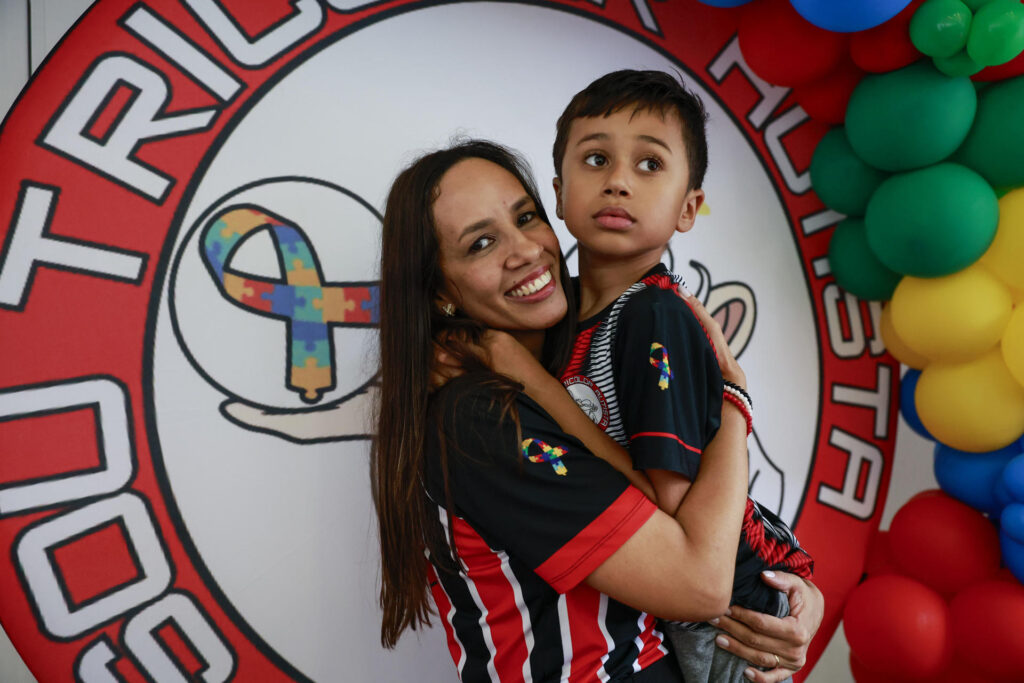Brazil’s Atypical Fans: How Autistic Supporters Are Changing the Game

In Brazil, where football is more religion than sport, few things rival the power of a flag raised high. But in recent seasons, new banners have joined the iconic waves of green, black, red, and white—flags emblazoned with puzzle ribbons and blue infinity symbols, marking the rise of autistic fan groups who are remaking the stadium into a place of inclusion, empathy, and pride.
Their message is simple: everyone belongs in the world’s game. And as their flags ripple beneath the floodlights, they remind a divided nation that love for football can still bridge every distance—even the quiet ones.
Breaking Barriers One Flag at a Time
On a match night at Corinthians’ Neo Química Arena, one banner flutters among the roaring black-and-white masses: “Autistas Alvinegros.” For some, it’s a curiosity. For others, it’s a revolution.
The group’s founder, Rafael Lopes, is a lifelong Corinthians fan. In 2022, at age thirty-three, he was diagnosed with level-one autism—a revelation that finally gave shape to a lifetime of struggle with sensory overload. “I’m one of the late ones,” he told EFE, smiling with a mix of defiance and relief. “Now I know why the fireworks and the shouting hit me the way they did. But I never wanted to stop coming here. This is my home.“
Twice a week, Rafael crosses São Paulo from south to north to watch his team play. His flag—printed with the club’s crest and the autism puzzle ribbon—now hangs “where the cameras always turn,” he says. The visibility matters. It tells thousands of families watching from home that the stadium belongs to them too.
The group’s presence has already changed the matchday experience. Corinthians, like several major clubs, has opened TEA spaces—quiet, glass-paneled rooms with softer lighting and reduced noise for fans with sensory sensitivities. For some, those rooms mean safety. For others, just seeing that flag in the crowd means permission to return. “We’re showing that it’s okay to come back, that you can love football without fear,” Rafael explains.
From Rivals to Allies in Inclusion
In another corner of São Paulo, the same year, a different flag was born—this time in red, white, and black.
Rosângela Barbosa, a devoted fan of São Paulo FC, used to attend every game at the Morumbi stadium until her son, João, was diagnosed with level-two non-verbal autism. “I stopped going,” she told EFE. “I thought he wouldn’t stand the noise. The stadium felt impossible for him.“
Her husband and older son kept the family ritual alive. Still, Rosângela stayed home with João—until one Sunday afternoon she saw something on television that made her heart skip—a banner from Corinthians, her club’s fiercest rival: Autistas Alvinegros.
It sparked an idea that transcended rivalry. “If they can do it, why can’t we?” she thought. Within weeks, she launched Autistas Tricolores, first as a small online page, then as a movement. By the end of 2022, Morumbi had its own multisensory space, a quiet refuge where João could watch matches without being overwhelmed. “The rivalry stays on the pitch,” she laughs. “Off it, Rafael and I are on the same team.“
Together, Autistas Alvinegros and Autistas Tricolores became pioneers. Their cooperation across Brazil’s fiercest rivalry—Corinthians and São Paulo—sent a signal to clubs across the country: inclusion isn’t charity; it’s culture. Their collaboration turned competition into solidarity, inspiring similar fan groups in Flamengo, Palmeiras, and Fortaleza.

The Stadium as Training for Life
For Rosângela, the decision to bring João to the stadium was not just about football—it was about learning courage. “The stadium prepares them for life,” she explained to EFE. “It’s unpredictable—there’s song, there’s light, there’s shouting, there’s smell. If he can handle this, he can handle anything.“
João’s first match was a sensory storm: lights, smoke, chants. He covered his ears and rocked for much of the first half. But each game since has been smoother. Now he claps when São Paulo scores, a gesture that fills his mother with quiet triumph. “It’s a process,” she says, “but every small step is a victory.“
Her story mirrors that of dozens of families who now attend games across Brazil thanks to these initiatives. The journey from the parking lot to the seats can be daunting—the security checks, the noise, the crowd—but every successful visit builds confidence. “It’s exposure therapy with purpose,” Rafael says. “Football teaches resilience. It teaches empathy.“
Clubs have begun to notice. The pressure from these “atypical fans” has led to national accessibility standards. The legendary Maracanã Stadium in Rio de Janeiro recently opened its first sensory room. Other clubs are creating staff training programs to support neurodiverse fans. Slowly, the terraces are evolving from chaos into community.
A Movement Larger Than the Game
Brazil’s stadiums have always reflected the country itself—beautiful, loud, fractured, unequal. For decades, autistic Brazilians and their families watched football from afar, fearing ridicule or misunderstanding. Now, through banners raised by people like Rafael and Rosângela, they are claiming visibility in the nation’s grandest ritual.
Autism affects over two million Brazilians, yet the spectrum’s diversity is rarely found in public life. That is changing. These fan groups don’t gather in segregated sections—they scatter throughout the stands, embodying true inclusion: presence, not isolation.
“Every visit is a step forward,” Rafael says. “We’re not just spectators; we’re examples. One flag tells thousands of people watching from home that they can belong to.”
Their flags ripple beside the team colors now, carrying no slogans of victory—only the quiet triumph of belonging. Football, a sport long associated with aggression, is learning from its gentlest voices. Across Brazil, puzzle-patterned banners fly next to the club crests, symbols of a revolution that doesn’t shout—it listens.
When the final whistle blows, the scoreboard fades, but the message remains: inclusion is not a favor, it’s a right. These atypical fans have given Brazil something it didn’t know it was missing—a reminder that empathy, like football, unites more than it divides.
And as the drums roll, as chants shake the stands, the new flags wave high—not for goals or glory, but for a quieter kind of victory: a game where everyone gets to play.
Also read: Eduardo Nájera’s Homecoming: How a Viking’s Son Is Rewriting Mexico’s Basketball Future





